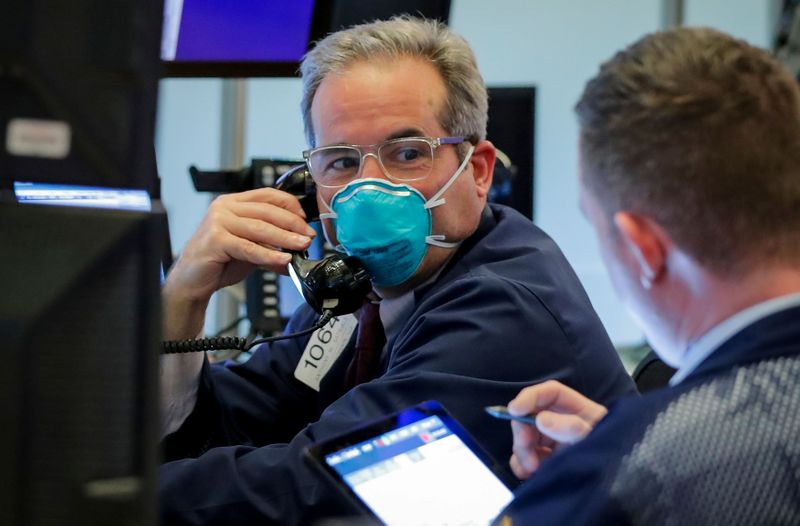By April Joyner
NEW YORK (Reuters) - Investors are betting on stocks to remain volatile well into the year, suggesting that many expect the long-term economic and public health impact of the pandemic caused by the novel coronavirus to continue roiling markets despite a recent rally.
The Cboe Volatility Index (VIX), known as Wall Street's fear gauge, recently traded at 43.36 on Wednesday from a record closing high of 82.69 on Mar. 16.
Prices for near-term VIX futures, which reflect expectations of volatility in coming months, have dropped as well in the past two weeks. Front-month VIX futures (VXc1), which expire on Apr. 15, were last trading at 42.15 from 45.875 on Mar. 26.
Yet longer-dated VIX futures have risen since late March. VIX futures expiring in September
VIX futures curve: https://fingfx.thomsonreuters.com/gfx/mkt/qmyvmjwbpra/Pasted%20image%201586369011572.png
Their continued buoyancy reflects expectations that it will likely take months for investors to get a clear picture of the economic impact of the pandemic. Recent U.S. data have only begun to reflect the damage to employment and other areas.
"We don't know the full economic impact, hence volatility has remained sticky," said Stacey Gilbert, portfolio manager for derivatives at Glenmede Investment Management.
Some strategists also pointed to the possibility of a second wave of coronavirus infections, which could delay the resumption of normal business activity. Signs of a second wave have already emerged in China, and certain economic indicators, such as coal consumption by power plants and property sales in top cities, have pulled back, economists at Citi wrote on Tuesday.
"There's a danger of getting lulled into complacency in the summer that we'll get to 'normal,' and then get a repeat of this in the fall," said Amy Wu Silverman, equity derivatives strategist at RBC Capital Markets.
It has taken VIX futures anywhere from five to 15 months to revert to typical levels after past market shocks, said Gilbert at Glenmede. Given the current slowdown was provoked by health rather than financial concerns, it could take longer for volatility markets to fully process its effects, she said.
If the U.S. economy were to remain partially closed into the fall, it could also influence November's U.S. presidential election and thereby usher in market turbulence, said Michael Purves, chief executive of Tallbacken Capital Advisors.
"These kind of events mean volatility in the political arena as well, and some of that has enduring impact in the market," Purves said.
